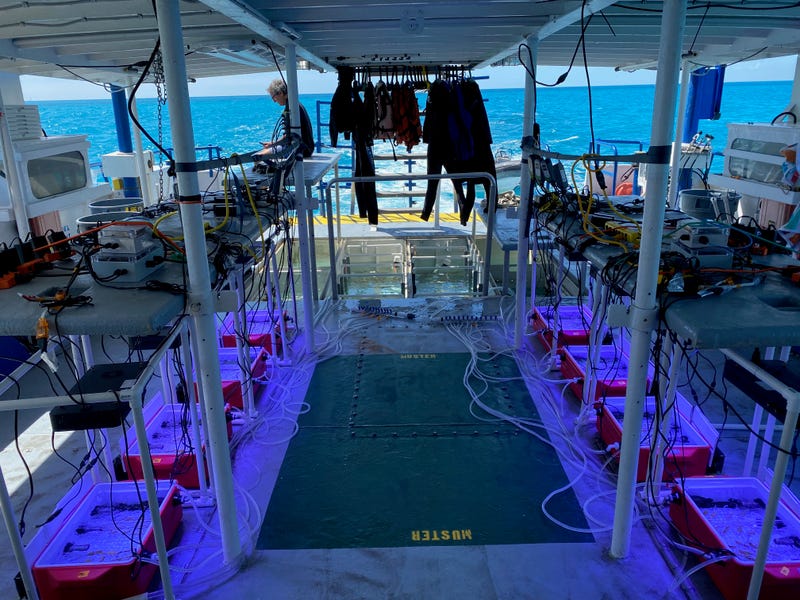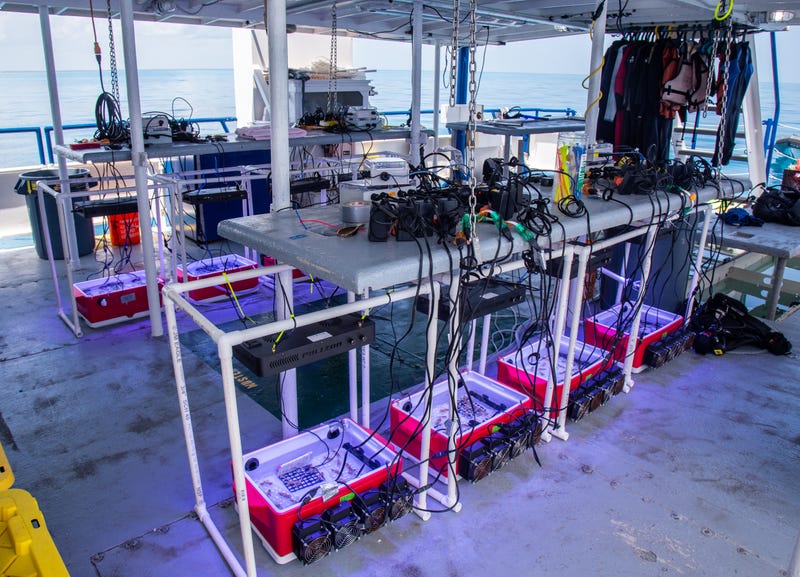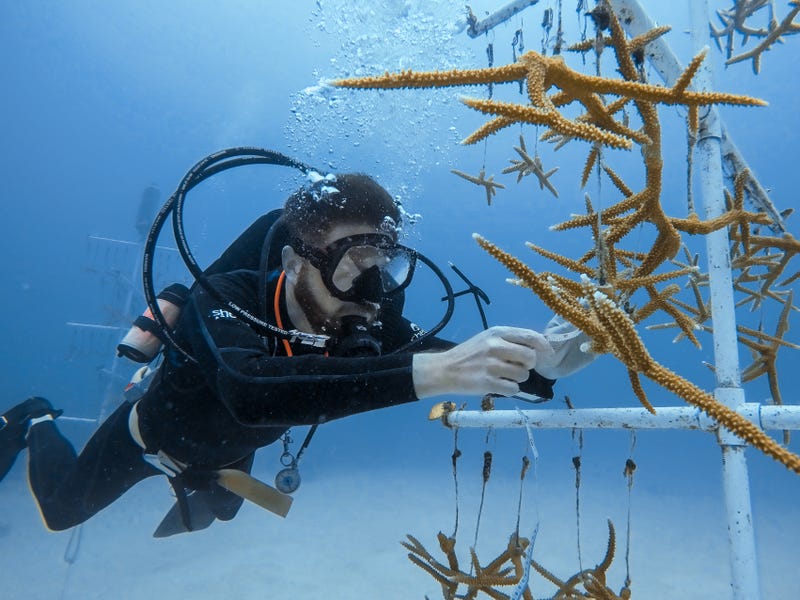
CHICAGO (WBBM NEWSRADIO) -- Scientists at the Shedd Aquarium have finished a breakthrough study on the world's coral reefs and how to save them from climate change.
Ocean warming is the primary threat to coral reefs; and for coral scientists, like Dr. Ross Cunning, research biologist at Shedd Aquarium and lead author of the study, the big question is how to help these vital ecosystems withstand the heat of warmer waters.
"This study allowed us to identify certain strains of coral that have natural heat tolerance in their DNA, so we can start to use these more heat-tolerant corals for reef restoration," Dr. Cunning said.
Dr. Cunning traveled to Florida for two research expeditions on a Shedd research vessel to collect coral fragments. He created and used machines called "Coral Bleaching Automated Stress Systems" - portable, experimental tanks custom-made at Shedd using Coleman party coolers with aquarium chillers, heaters and controllers that precisely manipulate the seawater temperature in each system.
"So we can set these tanks up on the deck of our research ship and collect corals directly from the reef, put them in the tanks, and test their heat tolerance right away," he said.

Thanks to the Shedd's research vessel, a team was able to test the heat tolerance of 229 genotypes of staghorn coral growing at six nurseries from Broward County to the lower Florida Keys.
The Coral Bleaching Automated Stress Systems were used to determine at which temperature each coral showed signs of bleaching—the heat stress response in which corals expel the vital symbiotic algae that live within them, according to the Shedd. DNA samples were also taken from the coral fragments for testing in the Shedd’s molecular and microbial ecology lab, where they will be analyzed to determine genetic factors underlying heat tolerance. The study’s results showed significant variability in the heat tolerance of the 229 corals, with certain genotypes exhibiting higher heat tolerance that may translate to better survival in warming oceans.

Data from the Shedd's research will help organizations working to restore climate-resilient reefs in Florida and will boost the success of restoration projects globally.
The Shedd aims to take the momentum from the study to the Bahamas to expand heat tolerance testing to even larger coral populations and help boost the resilience of Bahamian coral reefs—the primary marine research location for Cunning’s work. They also plan to bring efforts back to Chicago to inspire local teens to help save coral reefs.
The study, “Census of heat tolerance among Florida’s threatened staghorn corals finds resilient individuals throughout existing nursery populations,” can be read online.

